一般过去时精讲分享资料
一般过去时超详细讲解+例题训练备课讲稿

一般过去时超详细讲解+例题训练一般过去时超详细讲解+例题训练一般过去时(simple past tense)表示过去某个时间里发生的动作或状态;过去习惯性、经常性的动作、行为;过去主语所具备的能力和性格。
一、一般过去时的形式1.动词be的一般过去时态的形式有两种,即was, were。
was用于第一、三人称单数,were用于第一、三人称复数和第二人称单、复数。
You were we were they were2.行为动词一般过去时态的形式:动词的过去式,没有人称和数的变化。
二、一般过去时的用法1. 表示过去某个特定时间发生的动作或存在的状态,这种情况常下与“just now 刚才,yesterday昨天,last year去年,in 1999在1999年,two days ago两天之前”等表示过去的时间状语连用。
She suddenly fell ill yesterday.她昨天突然病倒了。
We didn't have classes last week.上周我们没有上课。
• 一般过去时亦可与“today今天,this week这周,this month这个月,this year 今年”等表示现阶段时间状语连用。
如:Did you meet him today?今天你看见他了吗?2. 表示过去的习惯性或经常发生的动作一般过去时表示过去经常或反复发生的动作,常和“often经常,always总是,once a week一周一次”等表示频度的时间状语连用。
I went to the cinema once a week when I was at school.我上学时每周去看一场电影。
When I was in the countryside, I often walked by the riverside.我在乡下时经常在河边散步。
• 表示过去一段时间内经常或反复发生的动作,也可以用would+动词原形或用used to加动词原形:When he was young, he would go skating every winter.Mrs Smith used to have a big house in down town.史密斯夫人在城里曾经有一座大房子。
一般过去时.语法讲解ppt课件
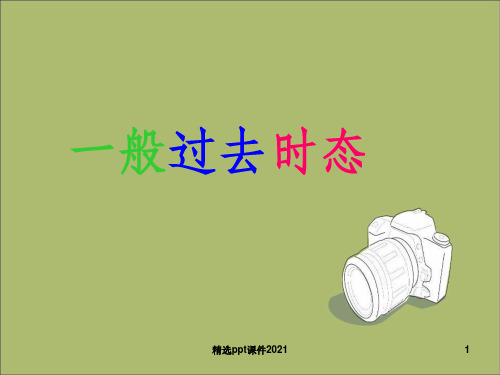
精选ppt课件2021
一般过去时态
精选ppt课件2021
1
1. 含 义
一般过去时表示过去某个时间发生的 动作或存在的状态。常和表示过去的时 间连用。如last year,yesterday等. 我每天去上学。 我昨天去上学。 I went to school yesterday. 他每天下午都去打篮球。
他上星期一打篮球。
2.表示过去经常或反复发生的动作。
My father often went to work by bus last year.
When I was a child, I often listened to music.
精选ppt课件2021
3
3.表示已故人所做的事情。
Comrade Lei Feng did good deeds in his life.
精选ppt课件2021
2
2. 用 法
1.表示过去某个时间发生的动作或存在的状态。 He was here yesterday. I got up at six thirty yesterday morning. My father was at work yesterday afternoon. Did you have a good time last summer?
6.行为动词一般过去时的疑问式
一般过去时的一般疑问式在句首加助动词did Did+主语+动词原形……?
They f_in_i_sh_e_d_(finish) their work at four. 一般疑问句:
_D_i_d_ they _f_in_i_sh_ their work at four? Yes, they _d_id___. No, they _d_id_n_’_t.
一般过去时讲解课件(共19张PPT).ppt
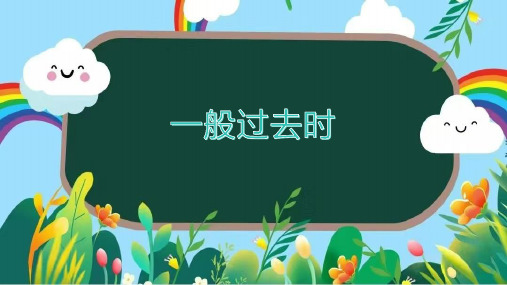
否定句
1) 主语+wasn’t/weren’t+表语
He wasn’t a student ten years ago.
2) 主语+didn’t+动词原形+其他
They didn’t have a good time last night.
4.一般过去时的结构
一般疑问句
was为单数; were为复数
一般过去时的结构
4.一般过去时的结构
was为单数; were为复数
肯定句
1) 主语+was/were+表语
He was a student ten years ago.
2) 主语+动词过去式+其他
They had a good time last night.
4.一般过去时的结构
was为单数; were为复数
时间+ago类 in+年份类
yesterday morning;yesterday.... last night; last week...
two days ago in 2023
动词过去式的变化
3.动词过去式的变化 1.直接加ed work--worked look--looked 2.不发音的e结尾,去e加ed hope--hoped like--liked 3.重读的闭音节词,双协结尾字母加ed stop--stopped plan--planned 4.以辅音字母加y结尾,变y为i再加ed study--studied try--tried 5.不规则变化
What did they do last night?
总结与练习
5.总结与练习
一般过去时 1.定义:表示一个过去发生的动作或表示过去存在的状 态 2.标志词:yesterday,last...,....ago, just now..... 3.动词的过去式变化 4.一般过去时的各种句型:
一般过去时讲解
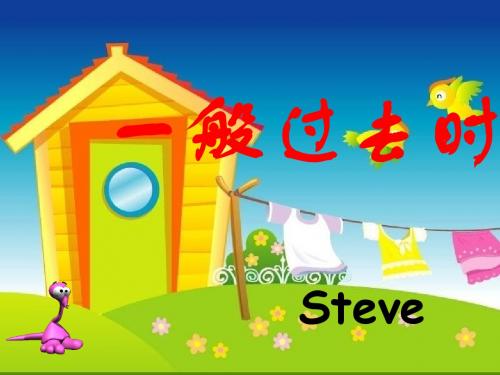
was
were was
பைடு நூலகம்
she
it we you they
were
I _______tired yesterday. was was It _______ cold yesterday. were You _______ late yesterday. was He _______ sick at that time. were We_______ busy last time. They_______ in their office yesterday. were
won’t give 3. The speaker _______________ (not give) us the talk the day after tomorrow.
4. ________ you ________ (do) morning exercises every day? Do do
No, she didn’t.
否定句:只要在was 或were 后面加no就搞定!
I was busy. I was not(wasn’t) busy. You were in class yesterday. You were not (weren’t in class yesterday.
疑问句:将was 或were 放句首,主语紧随其后!
didn’t go 17. His parents _____________ (not go) out for a walk after supper yesterday.
was 18. Where ___________ (be) Mei Fang last night?
仿照示例,把下列各句变成疑问句,然后做出简略回答。
一般过去时精讲
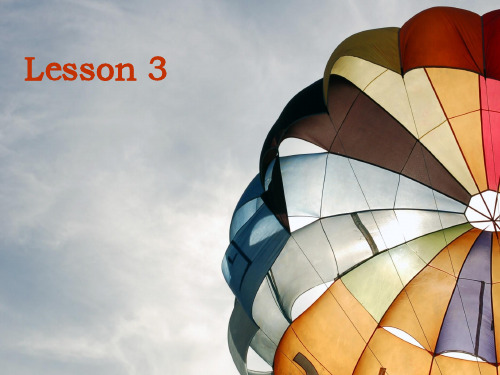
"Why use my elbow and foot?"
"Well, gosh," replied the mean man, "You're not coming empty-handed, are you?"
build→built,lend→lent, send→sent,spend→spent 2.结尾d变t 如:
ring→rang,sit→sat, drink→drank, sing→sang,swim→swam,begin→began, give→gave 3.遇见i改为a 如:
ride→rode,drive→drove,write→wrote
我上学时每周去看一场电影。
I went to the cinema once a week when I was at school.
我在乡下时经常在河边散步。(contryside,riverside)
When I was in the countryside, I often walked by the riverside.
ago
4.与one 连用: morning
one afternoon
evening day 5.与that 连用M:ondayatafttheartnotoinme
morning
that day
winter year
6.与in 连用: in 1980 in those days in the old days
“为什么要用我的肘和脚呢?” "Why use my elbow and foot?"
一般过去时复习.教学资料
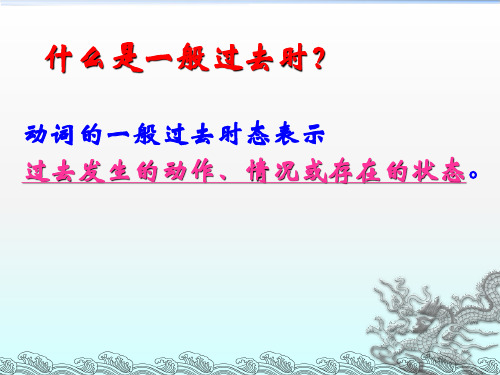
2. Everything __B_ ready before
Father came.
A. were B. was
C. is
3.He always __A___me last term(学期).
A. helped
B. helps C. help
4. —Tim ___B___ the math test last weekend. What about
three hours
five days one week
ago
six months
four years
2.与last 连用
last
time night week month Monday
3.与yesterday 连用:
morning
yesterday afternoon
evening
the day before yesterday
today?
昨天天气怎么样?
How_w_a_s_ the weather yesterday ?
情态动词在一般过 去时中的应用:
can
could
have/has to
had to
他五岁时会游泳。
He _co_u_ld_ s_w_i_m_ when he was five?
三年前你会说英语吗? C_o_u_ld_ you _sp_e_a_k English three years ago?
four?
did
didn’t
Yes, they _____. No, they _____.
行为动词一般过去时的特殊疑问式
一般过去时的特殊疑问式
小学英语一般过去时讲解精品PPT课件 图文

概述
表现形式
主语+过去式
•动词的一般过去时
动词的一般过去时主要表示过去的动 作或状态
例句
CLICK TO ADD CAPTION TEXT
He walks to school.
He walked to school
例句1中的动词walks是现在时,表 示目前的习惯性,经常性的动作; 例句2中的动词walked是过去式,
2 I was very tired last night. 我昨天晚上非常疲惫
3 I was very tired last night. 我昨天晚上非常疲惫
4
She was a teacher.
她曾经是个老师。
行为动词的一般 过去时
行为动词的过去式一般是在动词后 加-ed,这类动词被称为规则动词。 在加-ed时,不同的规则动词在形 式上还会有不同的变化规律
基本用法
CLICK TO ADD CAPTION TEXT
那夜子都想,自打他俩分手以来,他 看着若 总觉得 隔着、 不透亮 ,像在 雾里, 掩着纱 帘…… 是由于 他不适 应新角 色、心 理有问 题,还 是她的 确有事 儿瞒了 他…… 他画着 问号, 一时又 理不出 头绪… … 第二天上午,也就是周五上午,子都 给亦冰 打电话 问若的 情况, 亦冰说 昨晚他 走后若 就没再 醒过来 ,早晨 他离家 的时候 她还在 床上躺 着;说她 应该是 不去上 班了, 是他给 雨馨准 备的早 饭、送 的学校 ……子 都想一 定是若 的酒劲 还没缓 过来。 他不想 打扰她 休息, 想下午 与她联 系。 下午子都给若打电话,那时她正在去 单位的 路上, 子都说 都三点 了,问 她这么 晚还去 单位干 吗,她 说单位 有事儿; 他又约 她吃晚 饭、或 是找个 地方坐 会儿; 她说晚 上约了 人…… 子都心 里很是 不爽, 嘴上又 不便说 什么, 就说她 身体不 好,办 完事儿 早点回 家,到 家后告 诉他一 声;她应 承着 …… 那晚子都在家心不在焉地看着电视, 总觉着 要发生 点什么 事儿… …“她 这叫归 家吗?今 天这事 儿、明 天那事 儿,以 前也没 说这么 忙过; 还说身 体不好 ,好人 又怎样? 谁经得 起天天 这般折 腾…… 唉!碍 着我啥 事儿了 ,跟着 瞎起哄 ,爱咋 咋吧… …”他 说是不 挂念, 心里别 扭着。 九点过 半,仍 无若的 消息, 他心神 不宁… …“又 喝了? 不要命 了?昨晚 的事情 过眼就 忘…… 可怜的 亦冰, 这些年 真够难 为他的 ……” 他待要 给若发 信息, 问她是 不是还 在外面 ,她给 他发来 信息, 说她到 家了, 要他放 心…… 他悬着 的心算 是告一 段落地 放下来 ,也该 洗洗睡 了…… 子都刚躺下,有电话打进来,是杨巍 的,他 吃了一 惊,第 一反应 就是若 ……这 还是杨 巍初次 用手机 给他打 电话, 他的手 机号码 也是上 次找他 办事儿 时存下 的。“ 若是不 是还在 外面没 回家?出 什么事 儿了… …”他 刚待接 听,那 边挂了 ,等了 几分钟 ,对方 没再打 过来… …“诶 ?怎么 回事儿 ?这么 晚了, 误碰… …不对 ……不 管怎样 ,打过 去问问 。”于 是他就 把电话 打过去 ,电话 通着, 没人接 听,他 心犯狐 疑,一 连又打 了七、 八个过 去…… “莫非 他与若 在一起 ……绝 不是误 碰…… ”他随 即给若 打电话 ,没人 接,再 打…… “她俩 一定在 一起… …发生 了什么? 不行, 得去找 她…… ”他毫 无迟疑 ,起身 穿上衣 服…… “今晚 一定要 见着她 ……” 一种不 安袭击 着他。 他想给 亦冰打 电话, 问若在 不在家 ,又一 想先别 大惊小 怪的, 过去看 看若的 车是否 在家再 做道理 。他匆 匆离家 ,走的 时候连 屋里的 灯也没 顾得关 …… 路上车少,子都心似弹飞,往日的路 程此刻 只用了 一半的 时间。 他留心 过往车 辆,生 怕路上 与她错 过。在 距若的 家不足 一分钟 里程时 ,他发 现前面 路边上 停着一 辆白色 的小车 ,尾灯 闪亮着 ……“ 车上一 定有人 ……” 他心里 一惊, 因为杨 巍家就 在这儿 附近。 “莫非 若的车 ……” 车速太 快,他 急点刹 车,错 车的一 刹凝眸 望去, 正是若 的车, 前排影 影绰绰 的两个 人影, 他脑袋 嗡地一 声,竟 至于狠 踩了一 脚油门 ,那车 轰的一 声穿窜 出去多 远…… 待他回 过神来 ,赶忙 把车停 靠在路 边,深 呼吸… …
一般过去时讲解PPT课件

did
助动词,用于构成一般过去时的 疑问句和否定句。
主语
句子中的动作执行者,可以是名 词、代词等。
例如
What did you do yesterday? 你 昨天做了什么?
其他成分
包括宾语、状语等,根据句子需 要而定。
动词原形
指动词的基本形式,即不加任何 时态或语态标记的形式。
特殊疑问句实例分析
when、after、 before、as等引导的 表示过去的时间状语 从句。
已经、曾经、刚才、 那时等表示过去的时 间副词。
02
一般过去时肯定句结构
主语+动词过去式+其他成分
01
02
03
主语
句子中的主体,可以是人 、物或抽象概念。
动词过去式
表示过去某个时间里发生 的动作或状态。动词的过 去式可分为规则变化和不 规则变化两种。
表示过去某个时间里发生的动 作或状态。
用法
陈述过去的事实或情况,描述 过去经常或反复发生的动作。
现在完成时
表示过去发生的动作对现在造 成的影响或结果,或从过去已 经开始,持续到现在的动作或 状态。
用法
强调过去与现在的联系,表达 一个动作从过去一直延续到现
在。
两者在时间状语上的区别
01
02
03
04
一般过去时
一般过去时讲解PPT课件
目录 Contents
• 一般过去时基本概念 • 一般过去时肯定句结构 • 一般过去时否定句结构 • 一般过去时疑问句结构 • 一般过去时特殊疑问句结构 • 一般过去时与现在完成时的比较
01
一般过去时基本概念
定义与作用
定义
一般过去时表示过去某个时间里 发生的动作或状态。
完整版)一般过去时的讲解
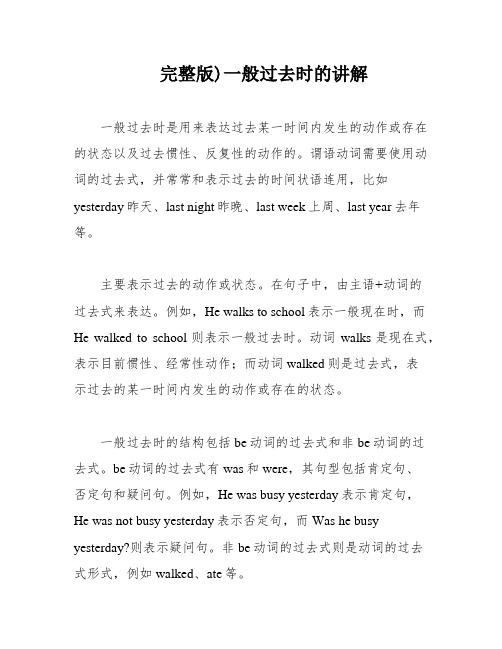
完整版)一般过去时的讲解一般过去时是用来表达过去某一时间内发生的动作或存在的状态以及过去惯性、反复性的动作的。
谓语动词需要使用动词的过去式,并常常和表示过去的时间状语连用,比如yesterday昨天、last night昨晚、last week上周、last year去年等。
主要表示过去的动作或状态。
在句子中,由主语+动词的过去式来表达。
例如,He walks to school表示一般现在时,而He walked to school则表示一般过去时。
动词walks是现在式,表示目前惯性、经常性动作;而动词walked则是过去式,表示过去的某一时间内发生的动作或存在的状态。
一般过去时的结构包括be动词的过去式和非be动词的过去式。
be动词的过去式有was和were,其句型包括肯定句、否定句和疑问句。
例如,He was busy yesterday表示肯定句,He was not busy yesterday表示否定句,而Was he busy yesterday?则表示疑问句。
非be动词的过去式则是动词的过去式形式,例如walked、ate等。
需要注意的是,There is (are)的句型用于一般过去时需要把is、are变为它们的过去式,即There was (were)。
否定句的结构和现在时一样,在be动词过去式(was、were)后面加上not即可,而was not和were not则通常使用缩写形式wasn’t和weren’t。
一般是在词尾加上-ed,如play-played,watch-watched等。
但也有一些规则动词需要变化,如go-went,have-had等。
I wasn’t busy the other day。
A few days ago。
I had somefree time.Was it raining in Beijing yesterday?Yes。
it was.No。
小学英语一般过去时专题讲解

小学英语一般过去时专题讲解一、一般过去时的定义1.表示过去某个时间发生的动作或存在的状态,常和表示过去的时间状语连用,如:yesterday, last night, in 1990, two days ago等;I was at the zoo yesterday.I went to bed at eleven last night.2.表示过去经常或反复发生的动作,常和表示频度的时间状语连用。
When I was a child, I often played football in the street.My father often drove to work last year.二、一般过去时的构成1.在表示某个时间里存在的状态主语+be的过去式(was, were)+其它。
Be的过去式的用法: was用于我(I)、他(he)、她(she)、它(it),复数(we, you, they)全部都用were.I was at home yesterday.We were in the gym just now.2.在透露表现曩昔某个工夫里产生的举措主语+动词的曩昔式+别的。
★3、动词曩昔式变革划定规矩:1.普通在动词开端加-ed,如:wash — _______play — _______2.结尾是e加d,如:dance — dancedlove — _____live —________3.以“子音字母+y”末端的,变y为i,再加-ed,如:carry — carriedstudy — _______4.开端只要一个元音字母和一个子音字母的重读闭音节,应双写开端的子音字母,再加-ed,如:stop-_______5.不规则动词过去式:(注:除去不规则变化动词,其他动词都是规则变化)原型am/isaredoseesaygiveget曩昔式was were did saw said gave got原型leave come have eat take run sing 过去式left came hadate took ran sang 原型go buy drink swim read put曩昔式went bought drank swam read put原型makewritedrawflyridespeak曩昔式madewrotedrewflewrodespoke4、普通曩昔时态的“三变”本领一变:肯定句变为否定句【本领1】当句中含有神态动词或助动词could,would,等时,可间接在其背面加not组成否认句。
最新一般过去时精讲ppt课件ppt

一、一般过去时之概述
2.表过去的时间状语:
yesterday, last night,
three days ago, one day, that winter, in 1990等
3.频度副词: often week 等
always
once a
用于一般过去时的时间状语
1.与last 连用
7.其他时间状语:
(1)刚刚 just now; (2)前几天 the other day; (I saw him in Paris the other day.) (3)从前 once upon a time (4)很久很久以前 long long ago
二、一般过去时之谓语变化
所有时态都是通过动词变化来表现的
help -- helped
ask -- asked
look→looked
2、e结尾的只加-d。hope→hoped来自love -- loved
dance -- danced live→lived
3、 最后三个字母辅元辅音,先双写,然后才
能加-ed。
stop→stopped plan(计划) →planned
build→built,lend→lent, send→sent,spend→spent 2.结尾d变t 如:
ring→rang,sit→sat, drink→drank, sing→sang,swim→swam,begin→began, give→gave 3.遇见i改为a 如:
ride→rode,drive→drove,write→wrote
last
time night Monday
week
month
PPT讲解(一般过去时).ppt

(was + not = wasn't , were + not = weren't) 在右侧编辑区输入内容
He wasn't an English teacher ten years ago. 在右侧编辑区输入内容
(3)一般过去时的一般疑问句: a.Did + 主语 + 动词原形 + 宾语 ? Did you study English in 1990 ? b.Was/Were + 主语 + 表语 ? Was he a pupil five years ago ?
3
3._______ you ______ (go) to the Great Wall last year?
5
5.The old man _______(be)ill and went to see a doctor.
2Hale Waihona Puke 2.Jack ____________ (study) for the English test last Sunday.
I was at home yesterday. 昨天我在家。
02
2、在表示过去某个时间里发生的动作,用动词的过去式构成。如:
I visited my uncle yesterday. 昨天我拜访了我的叔叔。
各种句式
01
(1)一般过去时的肯定 陈述句:主语 + 动词过
去式 + 宾语或表语。
He worked in Shanghai ten years ago.
PPT讲解(一般过去 时).ppt
演讲人
目录
PPT讲解(一般过去时).ppt
PPT讲解(一般过去时).ppt
一、定义:表示在的过去某个时间里所发生的动作或存在的状态。
一般过去时的讲解
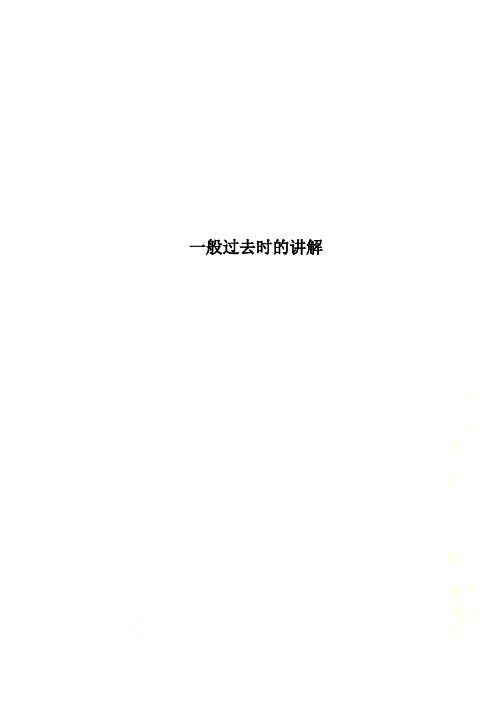
一般过去时的讲解1.一般过去时(1)一般过去时的概念、结构以及用法一般过去时用来表示过去某一时间内发生的动作或存在的状态以及过去习惯性、反复性的动作。
谓语动词要用动词的过去式,常和表示过去的时间状语连用,如yesterday昨天、last night昨晚、last week上周、last year去年,等。
◆一般过去时主要表示过去的动作或状态。
在句子中由主语+动词的过去式来表达。
1.He walks to school. (一般现在时)2.He walked to school. (一般过去时)例1.中的动词walks时现在式, 由于主语是第三人称单数he,因此原因的walk必须加上“s”,表示目前习惯性、经常性动作。
可译为“他现在经常步行上学”。
例2.中的动词walked是过去式,过去式是叙述过去事情的动词形式,所以这句话时表示的是过去的某时,例如昨天、上周或学生时代等过去的某一时间,这句可译为“他曾经步行上学”。
(2)一般过去时的几种结构1.b e 动词的过去式am与is的过去式是wasare的过去式是werebe 动词的过去时的句型如下:•肯定句:主语+be动词的过去式(was were)~•否定句:主语+ be动词的过去式(was,were)+ not ~•疑问句: be动词的过去式(was, were)+ 主语~?○He was busy yesterday. (肯定句) 他昨天很忙。
○He was not busy yesterday. (否定句) 他昨天不忙。
○Was he busy yesterday? (疑问句) 他昨天忙吗?(1)be动词过去时的肯定句Mike was in the United States last yea r. 麦克去年在美国。
be 动词的现在式和过去式: There is (are ) 的句型用于一般过去时需把is ,are 变为它们的过去式:There was (were) …(2)be动词过去式的否定句He was not in Canada last year. 他去年不在加拿大。
一般过去时-专题讲解课件.ppt

(二) 一般过去时的构成:
1. 有be的句子
am/is—was are—were eg.肯定句:He was a cook 2 years ago.
They were at school yesterday. 否定句:He was not a cook 2 years ago.
4. There was some milk in the bottle. (就划线部分提问)
5. He went to that city with his uncle. (改为一般疑问句)
Infinitive am is are begin break bring build buy can
A. are, am B. was, were C. were, was D. did, did
句型转换
1. Xiao Lin went fishing this morning.(改为一般疑问句)
2. We visited our teacher last night.(就划线部分提问)
3. He had lunch at school.(改为否定句)
不规则动词表
Past tense was were begun broke brought built bought could
Infinitive catch come do draw drink drive eat fall
Past tense caught came did drew drank drove ate fell
• 13、志不立,天下无可成之事。2020/6/202020/6/202020/6/202020/6/206/20/2020
英语一般过去时语法知识归纳总结材料

一般过去时语法知识一般过去时表示过去某个时间发生的动作或状态;过去习惯性、经常性的动作、行为;主语在过去时间段所具备的能力和性格。
一般过去时句子最明显的现象就是常由表达过去时间的副词、副词短语或从句来界定。
“过去”的概念并不仅指如“yesterday, last week,……”等,实际上...“.非现在......“.与现在对立的过去........”.,亦即的以前..”.形成对立,就必...............“.现在...........“.过了说话时间的几分钟之前............”.,只要所要表达的时间与说话时的...”.,哪怕是须使用一般过去时来表达。
............例如:He was here only a few minutes ago. 仅仅几分钟前他还在这里。
I came home just now. 我刚回到家。
“this + 时间,today”等时间副词常用于修饰一般现在时,但是只要..........”.对立,......“.与说话时的现在..句子的本意是即使句子中有..必须使用一般过去时。
..........例如:....,也......“.th..i.s +.....”.等.时间副词..时间,...todayI got up very early this morning. 今天早晨我起床很早。
He was late for school again today. 今天他又迟到了。
强化理解:1. 一般过去时表示在过去某个特定时刻或时期所发生的事情,也可以表示过去习惯性、经常性的动作。
一般过去时只说明过去的事情...........。
..............,.不强调动作对现在的影响I had a word with Julia this morning. 今天早晨,我跟朱丽亚说了几句话。
He smoked many cigarettes a day until he gave up. 他没有戒烟的那阵子,抽烟抽得可凶了。
- 1、下载文档前请自行甄别文档内容的完整性,平台不提供额外的编辑、内容补充、找答案等附加服务。
- 2、"仅部分预览"的文档,不可在线预览部分如存在完整性等问题,可反馈申请退款(可完整预览的文档不适用该条件!)。
- 3、如文档侵犯您的权益,请联系客服反馈,我们会尽快为您处理(人工客服工作时间:9:00-18:30)。
现在进行 时
The bus is leaving at 8:00.
2021/3/29
12
一般过去时的谓语
be动词(was,were)
助动词(did)
主语+谓语
情态动词(could,might)
实义动词(worked, played)
例如:
They were happy.
Did you play baseball yesterday?
( 2 ) 也表示过去经常或反复发生的动作 - - - 与 表示 频度的时间状语和表示过去的时间状语连用。
他去年总是坐公交去上班。
He always went to work by bus last year.
2021/3/29
3
我上学时每周去看一场电影。
I went to the cinema once a week when I was at school.
Lesson 3
2021/3/29
1
一、一般过去时之概述
2021/3/29
2
1.定义:
(1)表示过去某个时间发生的动作或存在的状态 ---与表示过去的时间状语连用
我昨天7点起床。
I got up at 7:00 yesterday.
我爸爸昨天下午在工作。
My father was at work yesterday afternoon.
2021/3/29
14
3、 最后三个字母辅元辅音,先双写,然后才
能加-ed。
stop→stopped plan(计划) →planned
drop -- dropped
beg -- begged
4、“辅音字母+y”尾,y改为i, 再加 -ed。
carry -- carried study -- studied
2021/3/29
15
巧记不规则动词过去式
keep→kept, feel→felt, sleep→slept,sweep→swept
1.ee:中间去e,末尾加t 如:
build→built,lend→lent, send→sent,spend→spent 2.结尾d变t 如:
ring→rang,sit→sat, drink→drank, sing→sang,swim→swam,begin→began, give→gave 3.遇见i改为a 如:
morning
that day
winter
year
2021/3/29
8
6.与in 连用: in 1980 in those days in the old days
2021/3/29
9
7.其他时间状语:
(1)前几天
the other day;
(I saw him in Paris the other day.)
6.“教书”“抓住”——aught切莫忘 如: know→knew,grow→grew,
throw→threw,draw→drew
7.ow/aw改为ew是新时尚 如: put→put,let→let,read→read/red
8.“放”“让”“读”过去式与原形一样 如:
2021/3/29
17
写出下列动词的过去式:
I could do it.
He worked here.
2021/3/29
13
规则动词过去式的构成
1、一般词尾加-ed。
stay→stayed
help -- helped
ask -- asked
look→looked
2、e结尾的只加-d。
hope→hoped
love -- loved
dance -- danced live→lived
answer answered read
stop
used lived woke kept said cleaned bought played learnt/ed saw read stopped
2021/3/29
16
ride→rode,drive→drove,write→wrote
4.“骑(马)”“开(车)”“写(字)”——把i变o如: think→thought,buy→bought,
bring→brought,fight→fought
5.“想”“买”“带来”“打仗”——ought换上 teach→taught,catch→caught
3.频度副词: often week 等
always
once a
2021/3/29
5
用于一般过去时的时间状语
1.与last 连用
last
time night Monday
week
month
2.与yesterday 连用:term
morning
yesterday afternoon
evening
2021/3/29 the day before yesterday
我在乡下时经常在河边散步。(contryside,riverside)
When I was in the countryside, I often walked by the riverside.
2021/3/29
4
2.表过去的时间状语:
yesterday, last night,
three days ago, one day, that winter, in 1990等
(3)从前
once upon a time
(4)很久很久以前
long long 2021/3/29 ago
10
二、一般过去时之谓语变
化
2021/3/29
11
所有时态都是通过动词变化来表现的
E.g.
You are right.
一般现在时
I want to go to school.
We are doing our housework now.
go
went
use
think thought live
be
was/ were wake
happen happened keep
give gave
say
become became clean
get got
buy
rain rained play
stay stayed learn
pass passed see
6
3.与ago 连用: a moment two minutes three hours five days one week six months four years
ago
2021/3/29
7
4.与one 连用: morning
one afternoon
evening
day
5.与that 连用M:ondayatafttheartnotoinme
